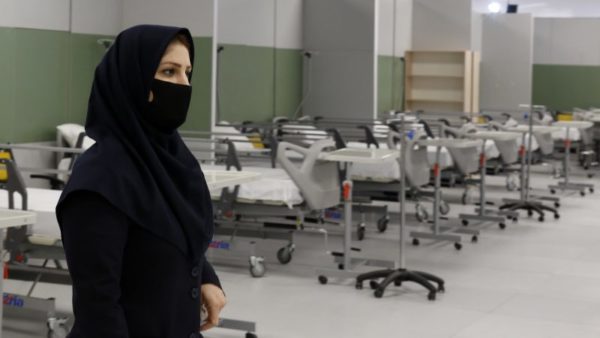

 Exclusive to Africa ExPress
Exclusive to Africa ExPress
Massimo A. Alberizzi and Monica A. Mistretta
March, 26th 2020
“Your parents are trapped inside the Italian embassy here in Tehran: there are seven infected officials there. Many continue to work as if nothing has happened. Notify your foreign ministry. Why don’t they close? The city is hit by one of the worst emergencies in the world since Covid-19 and there is a lack of equipment to treat the sick. If your parents go come home, they risk dying here. ”
The Africa ExPress editorial team received this dramatic message yesterday in the morning. Several Italians and some Iranians work at the Italian embassy in Tehran.

On March 8, the Italian ambassador in Tehran allegedly sent an emergency message to the Foreign Ministry’s Crisis Unit. Apparently he has not yet received a reply. The message spoke of the need to bring staff back just when Europe had announced a suspension of flights with Tehran. The flights, in fact, as we know, have never stopped.
The tampons were delivered at the embassy on 11 March. Since then, there has been no official communication about the infected seven. All employees know who they are: none of them have returned to work, but the fear is strong. The masks provided for protection are of poor quality. Someone turned to the unions for help. They say that nobody in Italy wants to face reality. The clearest proof is that on the ‘Viaggiare Sicuri’ website section of the Crisis Unit of the Farnesina, in the Country Facts section, Iran, one of the most affected countries in the world since Covid-19, is not even mentioned. Why?
In Iran, according to official figures, the infection has already killed 2,077, 143 in the last twenty-four hours. The hospitals in the country, where hundreds of patients are taken every day, are inaccessible to journalists. Our source says that armed men stop outside to prevent doctors from communicating with the press and revealing the real numbers of the infection. The country is isolated from the rest of the world for fear that the epidemic will arrive elsewhere as quickly as it spread to Iran. Amidst street protests, celebrations for the anniversary of the Islamic revolution and elections, the contagion has ran loose in recent months.
Apart from a few daily flights with Frankfurt, London and Barcelona (the last stop of Mahan Air in the Spanish city dates back to March 22), the country is cut off from everything. The US sanctions, although they do not directly affect the arrival of medical supplies and supplies, have affected the economy. Aid and medical equipment come from China, Italy, Germany and France. At the airports they land in tons, but some say that masks, gloves and sanitizers are not distributed for free and end up being available only on the black market.
Davood Karimi, president of the Association of Iranian Political Refugees in Italy, recounted the story of humanitarian aid in Tehran. “As soon as medical equipment arrives at the airport, it ends up in the hands of the Pasdaran. It is them, the Guardians of the Revolution, who control the business and sell everything at a high price on the black market. They have known for at least two months that the virus is circulating in the country, but apart from the fiction of the disinfestations of streets and mosques, they have done little or nothing to stop it. Now, according to unofficial figures, the deaths might be as high as 11,000. Everything is out of control and the Pasdaran hope that Europe will force Americans to ease sanctions. ”
In recent days, the government of Tehran has refused US humanitarian aid and has sent Médecins Sans Frontières staff home. “At the moment we don’t need hospital beds managed by foreign doctors,” said Alireza Vahabzadeh, spokesperson for the new Virus Fight Committee in Iran.
Yesterday the UN called for the easing of sanctions on the country. “This is the moment of solidarity, not of exclusion – the Secretary General Antonio Guterres rightly recalled addressing the powers of the G-20 -. I remind you that in an interconnected world we are as strong as our weakest health system”.
For now, Guterres’ heartfelt appeal is unlikely to be accepted by the rigid Trump administration which two days ago further tightened the sanctions by blacklisting five UAE petrochemical companies, all accused of doing business with Tehran. Our source speaks of overcrowded and dead hospitals on the street: “Official data downplay the reality. This is a real war.”And now, in contemporary wars, it is not the soldiers and military who die, but civilians.
Massimo A. Alberizzi
Monica A. Mistretta
massimo.alberizzi@gmail.com
monica.mistretta@gmail.com
